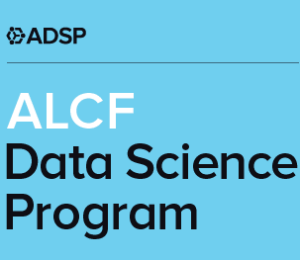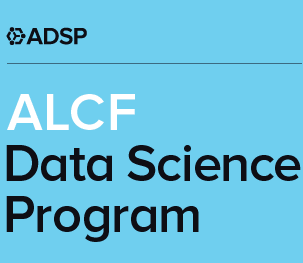 The ALCF Data Science Program at Argonne has issued its Call for Proposals. The program aims to accelerate discovery across a broad range of scientific domains which require data-intensive and machine learning algorithms to address challenging research problems.
The ALCF Data Science Program at Argonne has issued its Call for Proposals. The program aims to accelerate discovery across a broad range of scientific domains which require data-intensive and machine learning algorithms to address challenging research problems.
This program connects leading researchers with ALCF scientists to push the state-of-the-art in machine learning, workflows, data analysis, and algorithmic development. The ADSP employs a competitive proposal process that awards allocations of time on ALCF supercomputers. All proposals are peer reviewed by a panel of experts for both the scientific impact and computational readiness. The ADSP is for two years and are awarded to researchers from academia, government research facilities, and industry. PIs will be required to submit a renewal application for the second year of the award.
Successful projects are given the opportunity to partner with outstanding research teams, both in the Data Science group and at the ALCF, to deploy scalable learning and data analysis on leadership computing resources. The ADSP can be used to achieve computational readiness for ALCF programs such as INCITE and run on future systems such as Aurora, a new Intel-Cray system which will be capable of over 1 exaflops, that will be deployed in 2021.
ADSP project teams will have access to ALCF computing resources:
- Theta has 4,392 nodes, each with a KNL 64-core processor having 16 gigabytes of high-bandwidth in-package memory and 192 gigabytes of DDR4 RAM. Each node has 128GB node-local SSD storage. The aggregate peak compute speed is 11.69 petaflops. Storage includes a 10 petabytes Lustre parallel file system.
- Cooley is a visualization and analysis cluster with 126 compute nodes; each node has 12 CPU cores and one NVIDIA Tesla K80 dual-GPU card. The entire Cooley system has a total of 47 terabytes of system RAM and 3 terabytes of GPU RAM.
Ongoing and past ADSP projects span a diverse range of science domains, e.g. Materials, Imaging, Neuroscience, Engineering, Combustion/CFD, Cosmology; and involve large science collaborations (APS, LSST, DESC, LIGO, DES, ATLAS) and smaller research groups developing machine learning methods at scale. ADSP projects benefit from hardware and system architectures at ALCF which support data analysis and machine learning with a common software stack to allow for large scale science campaigns. The program also benefits the selected projects by offering directed assistance and computational time to gain experience scaling their codes on ALCF systems, leading to future INCITE and ALCC proposals and projects on DOE supercomputing systems.
This call is open to US- and non-US-based researchers and research organizations in universities, academia, industry, national laboratories and other research institutions needing large allocations of computing time, supporting resources, and data storage. DOE sponsorship is not required to participate. Note that there are federal laws regulating what can be done on ALCF systems. As an example, Classified Information, National Security Information or Unclassified Controlled Nuclear Information cannot be stored on our systems.
Proposals are due July 1, 2019.




